Scroll down to see the books in this category.
These collections of books have been assembled from many sources of recommended reading on Israel/Palestine, including: the United Church of Christ (UCC) and UCC PIN, Sabeel, Israel/Palestine Mission Network (IPMN) in the Presbyterian Church (U.S.A.), Jews for Justice for Palestinians (JFJFP) and others.
Presented in the following categories on individual pages:
• About/By Palestinian Christians
• Religion; The Bible; Christian Zionism
• History
• Personal Histories: Memoirs, Autobiographies
• Political Analysis; Diplomatic History
• The Current Situation
• Activism; Resistance; Solidarity; Intersectional Justice
• Novels; Short Stories; Poetry
• Palestinians inside Israel
• Zionism; Jewish Identity
• Faith Relations; Anti-Semitism
• Visual Arts; Crafts (poetry moved to new list)
• Tourism; The Politics of Tourism
• Children’s Books
Some books are listed in more than one category.
Please send us your suggestions for additions to these lists; contact us at [email protected].
![]()
The order of the books within each category is random and is not related to the importance of the work.
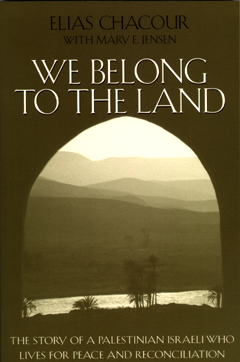 We Belong to the Land: The Story of a Palestinian Israeli Who Lives for Peace and Reconciliation, by Elias Chacour (2001)
We Belong to the Land: The Story of a Palestinian Israeli Who Lives for Peace and Reconciliation, by Elias Chacour (2001)
Nominated several times for the Noble Peace Prize, world-renowned Palestinian priest, Elias Chacour, narrates the gripping story of his life spent working to achieve peace and reconciliation among Israeli Jews, Christians, and Muslims. From the destruction of his boyhood village and his work as a priest in Galilee to his efforts to build school, libraries, and summer camps for children of all religions, this peacemaker’s moving story brings hope to one of the most complex struggles of our time.
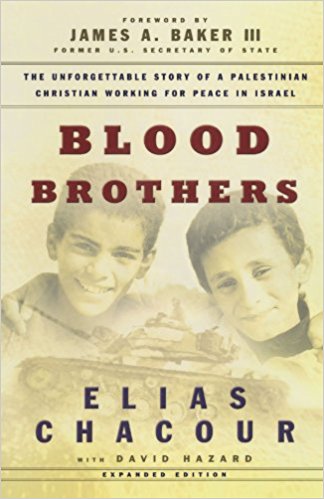 Blood Brothers, by Chacour, Elias (1984)
Blood Brothers, by Chacour, Elias (1984)
As a child, Elias Chacour lived in a small Palestinian village in Galilee. When tens of thousands of Palestinians were killed and nearly one million forced into refugee camps in 1948, Elias began a long struggle with how to respond. In Blood Brothers, he blends his riveting life story with historical research to reveal a little-known side of the Arab-Israeli conflict, touching on questions such as:
What behind-the-scenes politics touched off the turmoil in the Middle East?
What does Bible prophecy really have to say?
Can bitter enemies ever be reconciled?
Now updated with commentary on the current state of the Israeli-Palestinian conflict, as well as a new foreword by Lynne Hybels and Gabe Lyons, this book offers hope and insight that can help each of us learn to live at peace in a world of tension and terror.
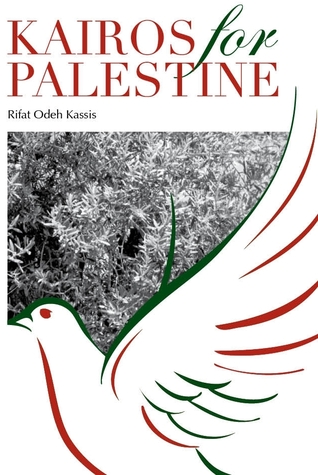 Kairos for Palestine, by Rifat Odeh Kassis
Kairos for Palestine, by Rifat Odeh Kassis
Part memoir, part political history, part theological reflection, this volume examines the history of Kairos documents from Christians in various global contexts, shares the background of the Kairos Palestine Document of December 2009, and demonstrates the importance and urgency of this movement of Palestinian Christians. Kassis also answers some of the critique that Kairos Palestine has received.
 Faith in the Face of Empire, by Mitri Raheb (2014)
Faith in the Face of Empire, by Mitri Raheb (2014)
This is an essential read to anyone who desires new insight into scripture, seeks a reorientation of geopolitical perspective, and maintains hope for justice for Palestinians. Preeminent Palestinian contextual theologian Mitri Raheb has woven a profound biblical study and theological reflection on empire with contemporary realities and personal reflection in his new book. Inspired by the prophetic tradition and a liberating understanding of the Trinity, Rev. Raheb challenges accepted notions and offers a vision of imagination and hope that he is already making real.
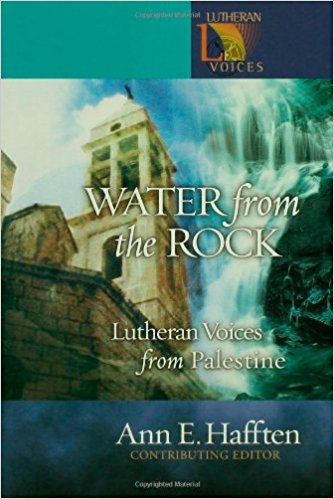 Water from the Rock: Lutheran Voices from Palestine, edited by Ann Haften
Water from the Rock: Lutheran Voices from Palestine, edited by Ann Haften
In this short collection of articles, diary entries, and reflections, Palestinian and American Lutherans share the context of Palestine, from their perspectives. The selections include writings by Bishop Munib Younan, Rev. Mitri Raheb, his sister Viola Raheb, and Dr. Nuha Khoury, as well as some US Lutherans who have served in Palestine with partners there. Each section has study questions so this book can be used in an adult education class.
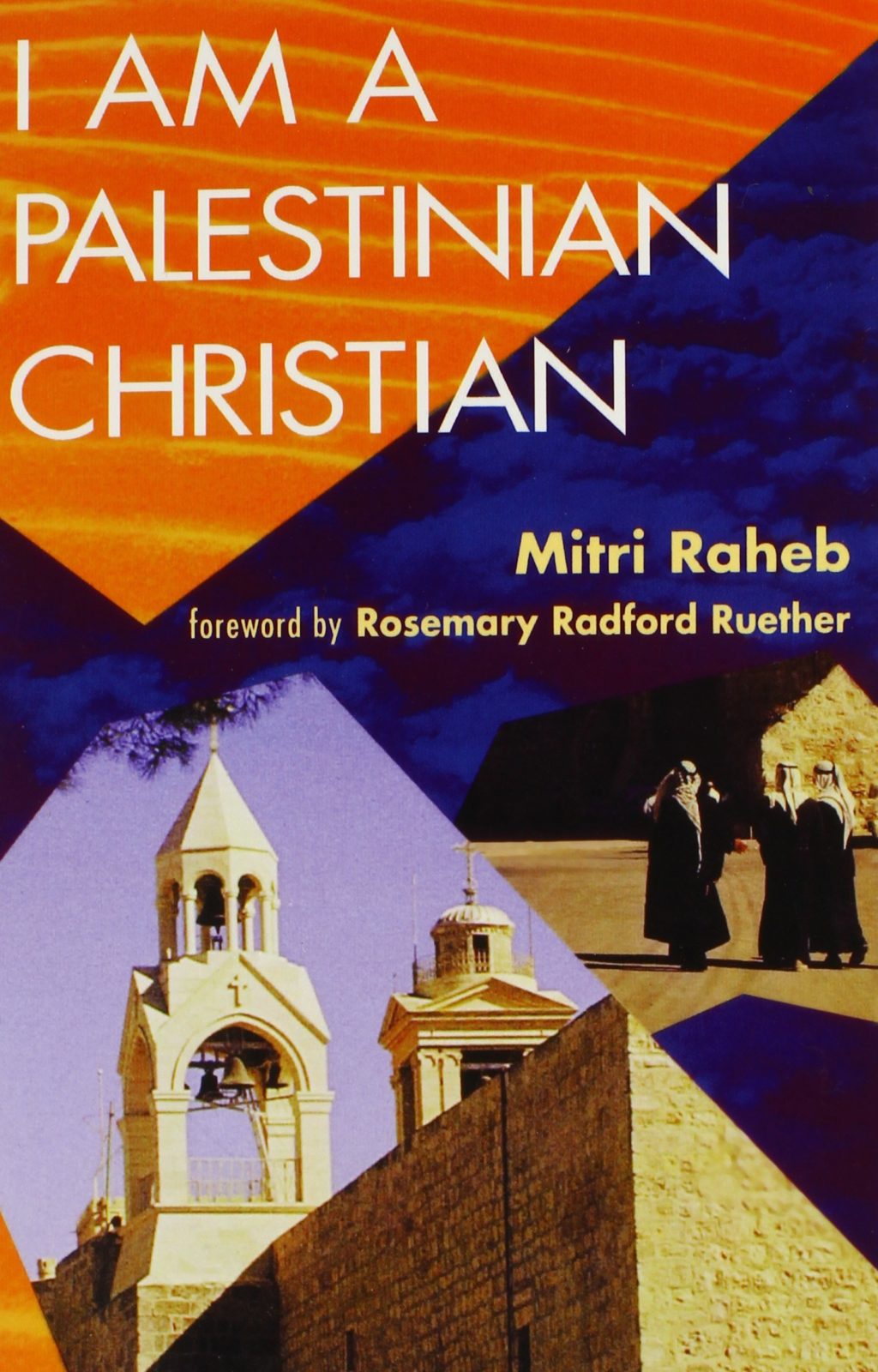 I am a Palestinian Christian, by Rev. Dr. Mitri Raheb (1995)
I am a Palestinian Christian, by Rev. Dr. Mitri Raheb (1995)
Rev. Raheb is pastor of Bethlehem’s Christmas Lutheran Church, and president of the Diyar Consortium. This book is a thorough examination of the issues faced by Palestinian Christians today, and is set in the context of history and theological reflection. Rev. Raheb’s book has become a classic on this less-known community.
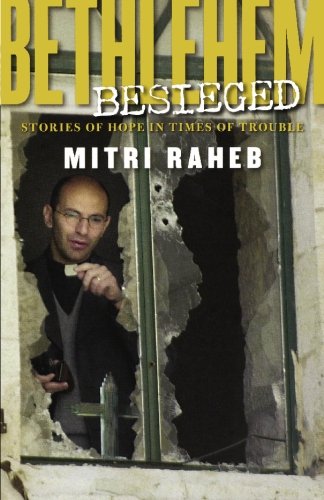 Bethlehem Besieged, by Rev. Dr. Mitri Raheb (2004)
Bethlehem Besieged, by Rev. Dr. Mitri Raheb (2004)
The pastor of Christmas Church, a Palestinian Lutheran congregation, Mitri Raheb here presents a powerful collection of compelling personal stories of desperation and hope in the midst of lethal conflict, bringing the Palestinian/Israeli conflict up close and personal. Raheb’s lifelong commitment to his people has kept him in the legendary birthplace of Christianity, even as Bethlehem has become a flashpoint in the world’s most volatile and hate-filled conflict. His passionate personal testimony lifts up the stray gesture toward friendship, the brave attempts to rebuild life and livelihood in a destroyed land, and the unquenchable desire for justice and peace.
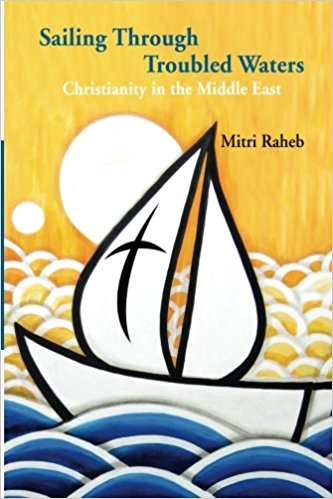 Sailing through Troubled Waters: Christianity in the Middle East, by Mitri Raheb (2013)
Sailing through Troubled Waters: Christianity in the Middle East, by Mitri Raheb (2013)
In this collection of seven lectures and papers, Rev. Raheb offers historical and theological insight into the current reality of Christians in the Middle East. The chapters offer the current context of the Christian communities, including encounter with Islam and contextual scriptural readings of the Qur’an; the situation of Palestinian Christians; a brief history of the Lutheran Church in Palestine and Jordan; and reflections on revolution and human rights.
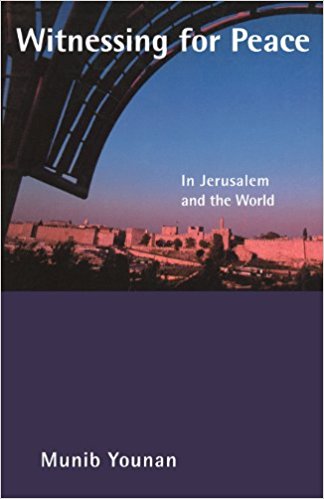 Witnessing For Peace in Jerusalem and the World, by Bishop Munib Younan (2003)
Witnessing For Peace in Jerusalem and the World, by Bishop Munib Younan (2003)
The rapidly deteriorating situation in Israel/Palestine has dashed hopes of any imminent peace or even accommodation between the Israeli people and the Palestinian people. A leader in Palestinian Christianity, and an outspoken advocate of nonviolence and of Palestinian rights, Bishop Munib Younan directly addresses this situation and its imperatives. Born of Palestinian refugee parents and raised in Jerusalem, Younan has spent his life pastoring Palestinian Christians and searching for nonviolent solutions in this complex and volatile religious and political scene. In this volume, Younan presents first the historical and social context of the Palestinian situation, beginning with the not-well-known story of Arab Christianity and his own background. He elaborates his own theology of nonviolence, centered in the idea of martyria-heeding a call to justice, inclusion, and forgiveness. He illustrates the notion with dramatic and often tragic episodes and shows how it can address key issues in the current struggle with Israel over statehood, land, and refugees. Younan’s model of Christian nonviolence also has demonstrable benefits in addressing terrorism, interreligious strife, and global peacemaking. Younan’s is a voice all Christians of conscience should hear.
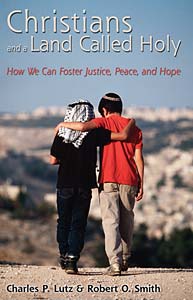 Christians and a Land Called Holy: How we can foster justice, peace, and hope, by Charles P. Lutz and Robert O. Smith.
Christians and a Land Called Holy: How we can foster justice, peace, and hope, by Charles P. Lutz and Robert O. Smith.
Smith, the Middle East executive for the Evangelical Lutheran Church in America, and Lutz, have written this very helpful book introducing the conflict, the actors (including Christian Zionists), and church partners, and offering guidance on what church people (and others) can do to be agents of change. This compact volume is especially helpful for those eager to engage locally, and the final chapter lays out suggestions. The bibliography is extensive.
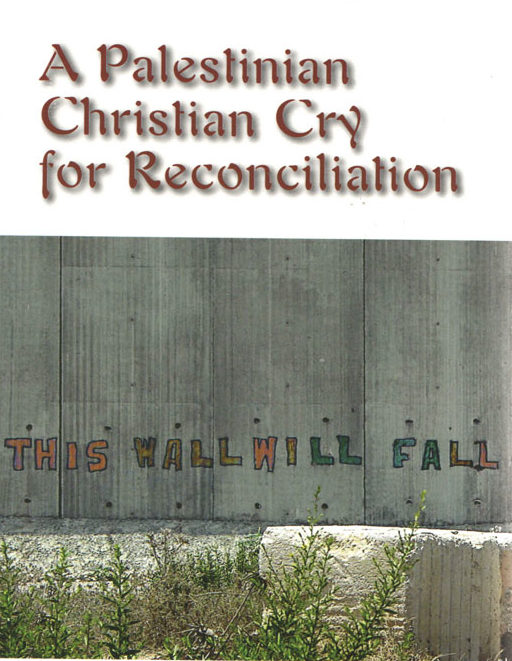 A Palestinian Christian Cry for Reconciliation, by Rev. Naim Ateek
A Palestinian Christian Cry for Reconciliation, by Rev. Naim Ateek
Rev. Ateek is the founder and director for the Sabeel Ecumenical Liberation Theology Center in Jerusalem, a partner of Global Ministries. Ateek’s new book is remarkable, provocative and challenging, and quite poignant. It is part personal narrative and part political commentary, all framed through a theological lens.
 Justice and Only Justice, by Rev. Naim Ateek
Justice and Only Justice, by Rev. Naim Ateek
Published first in 1989, this book is considered by many to be the foundational book of Palestinian liberation theology. It is seminal in that it addresses, from a theological and experiential point of view, the issues at stake in seeking justice and peace between Israelis and Palestinians.
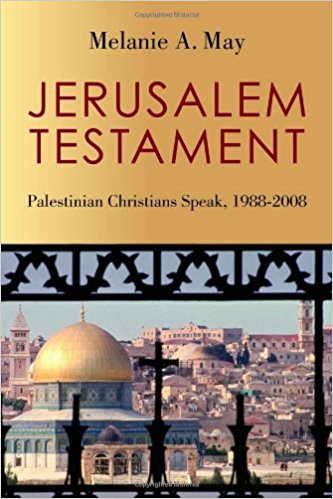 Jerusalem Testament: Palestinian Christians Speak 1988-2008, edited by Melanie May
Jerusalem Testament: Palestinian Christians Speak 1988-2008, edited by Melanie May
A comprehensive collection of all of the statements and letters issued by the heads of churches in Jerusalem, together, over a period of 20 years, May enhances this presentation of the documents with historical context. This book is useful as a reference, as history, and as theological insight into life under occupation. Over the course of these two decades, the heads of churches have addressed their statements to a variety of audiences. Their message is consistent, though, and it is one that should be heard directly from them: Peace and Justice must prevail. This book allows that voice to come through clearly.
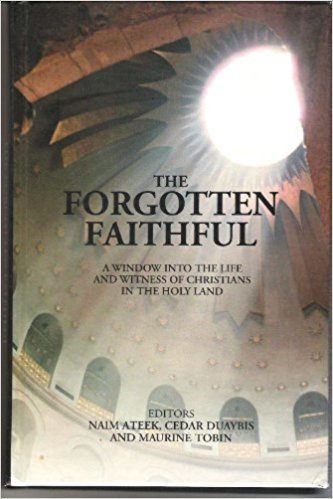 The Forgotten Faithful: A Window into the Life and Witness of Christians in the Holy Land, edited by Naim Ateek, Cedar Duaybis, and Maurine Tobin
The Forgotten Faithful: A Window into the Life and Witness of Christians in the Holy Land, edited by Naim Ateek, Cedar Duaybis, and Maurine Tobin
This collection of presentations from the 2005 International Sabeel Conference is a trove of valuable insight about the history, demographics, and witness of the Palestinian Christian community. With special articles on various church histories and presence, and deep foci on the current realities Palestinian Christians face as part of the Palestinian community, this book is exceedingly valuable.
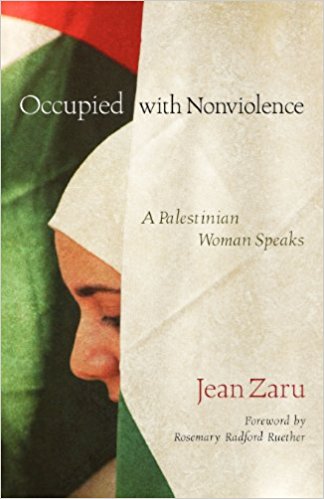 Occupied with Nonviolence: A Palestinian Woman Speaks, by Jean Zaru.
Occupied with Nonviolence: A Palestinian Woman Speaks, by Jean Zaru.
Mrs. Zaru is the Clerk of the Friends Meeting (Quaker), our partner in Ramallah. She has recently published a collection of speeches and papers. The book is highly readable, and is full of insightful content. It is an excellent treatment of a number of issues relating to the Israeli-Palestinian conflict, with a greater vision at stake. Mrs. Zaru treats issues of interfaith relations, women’s rights, human rights, Jerusalem, violence and nonviolence, and others in a way that some of us have come to know well.
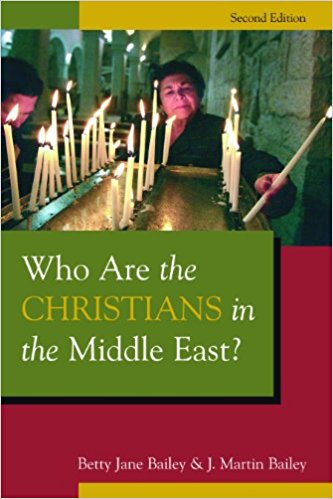 Who Are the Christians in the Middle East? By Betty Jane Bailey and Martin J Bailey, J. Martin (2003)
Who Are the Christians in the Middle East? By Betty Jane Bailey and Martin J Bailey, J. Martin (2003)
The authors, missionaries in the Middle East, describe past and present of the five church families of the Middle East and profile Christian presence by country, in Cyprus, Egypt, Holy Land, Iran, Iraq, Jordan, Lebanon, N. Africa, Persian Gulf, Sudan, Syria, and Turkey.
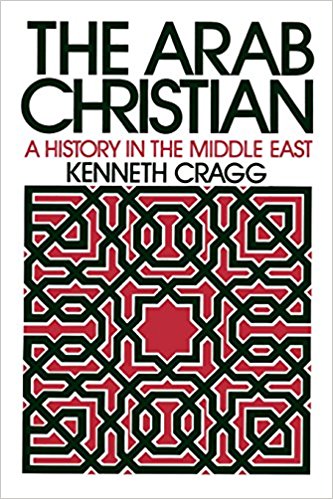 The Arab Christian: A History in the Middle East, by Kenneth Cragg (1991)
The Arab Christian: A History in the Middle East, by Kenneth Cragg (1991)
A major figure in Christian/Muslim conversation; detailed theological analysis. The author follows the journey of two monks who traveled from Egypt to Turkey and south through the Levant, beginning in 587.
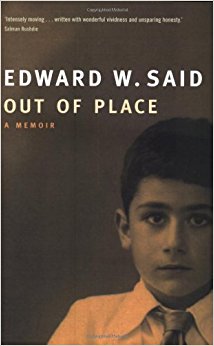 Out of Place: A Memoir, by Edward W. Said (1999)
Out of Place: A Memoir, by Edward W. Said (1999)
From one of the most important intellectuals of our time comes an extraordinary story of exile and a celebration of an irrecoverable past. A fatal medical diagnosis in 1991 convinced Edward Said that he should leave a record of where he was born and spent his childhood, and so with this memoir he rediscovers the lost Arab world of his early years in Palestine, Lebanon, and Egypt. Said writes with great passion and wit about his family and his friends from his birthplace in Jerusalem, schools in Cairo, and summers in the mountains above Beirut, to boarding school and college in the United States, revealing an unimaginable world of rich, colorful characters and exotic eastern landscapes. Underscoring all is the confusion of identity the young Said experienced as he came to terms with the dissonance of being an American citizen, a Christian and a Palestinian, and, ultimately, an outsider. Richly detailed, moving, often profound, Out of Place depicts a young man’s coming of age and the genesis of a great modern thinker.
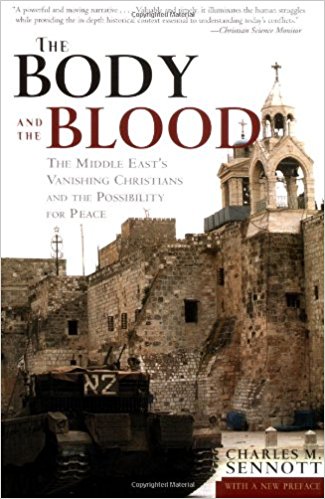 The Body and the Blood: The Middle East’s Vanishing Christians and the Possibility for Peace by Charles M. Sennott (2001)
The Body and the Blood: The Middle East’s Vanishing Christians and the Possibility for Peace by Charles M. Sennott (2001)
As the Middle East has gone up in flames, no image so captured the clash of cultures as did the siege at the Church of the Nativity, where Christian monks were trapped inside the fortress-like church, as Palestinian gunmen faced off against the Israeli military for five weeks. As Muslim and Jew battled for control, the Christians were caught in the crossfire: endangered and largely forgotten, victims of somebody else’s war. In The Body and the Blood, Charles M. Sennott examines the dwindling Christian communities of the modern Middle East in search of answers to the following questions: Why is Christianity dying out in the land where it began? And what are the consequences, not only for the future of Christianity but for the Middle East itself? From Israel to Lebanon to Egypt to Jordan to the ancient cities of the West Bank, Sennott finds that the themes resonating today are the same as those that convulsed the region at the time of Christ. His frontline reporting is powerful and provocative, as he shines a new light on the Middle East.
Dying in the Land of Promise-Palestine and Palestinian Christianity from Pentecost to 2000, by Donald E., Wagner (2001)
The plan of this book is unprecedented, balancing the broad historical overview of two thousand years of Palestinian Christian history with careful, incisive analysis of the issues shaping the current conflict. One senses that the further one moves through the book the more the Israeli-Palestinian conflict takes over and dominates, stifling and strangling the earlier vibrant story of Palestinian culture and history. Wagner’s specialization in understanding the modern, radical dispensational views of Christian fundamentalism—his other books include Anxious for Armaggedon, Peace or Armaggedon, and All in the Name of the Bible—helps to enlighten the 20th century part of the story, especially with regard to British politicians intent on granting to a third party (the Zionists) land that was not theirs to offer. Wagner is skilled in presenting complex issues in a clear and readable fashion. He draws from deep wells of scholarly research and offers it up as a refreshing and cool drink. Each chapter begins with a lively story or quotation and ends with a series of summary statements. This all makes Dying in the Land of Promise an ideal resource for Bible classes and other adult study groups. I will certainly make this a requirement for students preparing for Middle East study tours. It is a book for which I have been looking for quite some time.
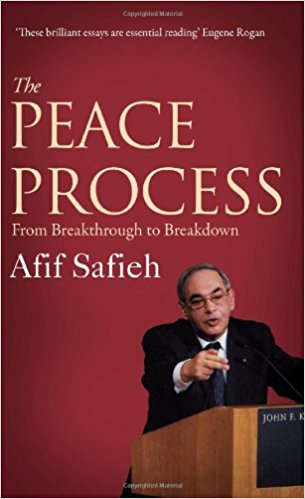 The Peace Process: From Breakthrough to Breakdown, by Afif Safieh
The Peace Process: From Breakthrough to Breakdown, by Afif Safieh
Afif Safieh served as Palestinian General Delegate in London, Washington and Moscow from 1990 to 2009. During this time, he met and interacted with the leading figures of our times: from Yasser Arafat, John Major and Tony Blair; to Jimmy Carter, George W. Bush and Pope John Paul II. The Peace Process: From Breakthrough to Breakdown brings together Afif Safieh’s articles, lectures and interviews from 1981, when he was a staff member in Yasser Arafat’s Beirut office, to 2005, at the end of his mission in London, revealing the political and intellectual journey of one of Palestine’s most skilled and distinguished diplomats. His writings, which centre on the Palestinian struggle for independence, are a testament to his vision and humanity and provide a unique map of Palestinian diplomacy over the last three decades.
Yet in the Dark Streets Shining: A Palestinian Story of Hope and Resilience in Bethlehem
By Bishara Awad and Mercy Aiken
Yet In the Dark Streets Shining details the little-known story of Palestinian Christians through the heartbreaking but inspiring account of a boy who grew up to be a spiritual and community leader in Bethlehem. Bishara Awad was just a child when his father was killed by a sniper during the Israeli-Arab war of 1948. After the family fled their Jerusalem home, Bishara and his siblings grew up as refugees. His spiritual journey brought him through poverty and danger, while witnessing loss and death. Under the shadows of persecution and war, he learned how to live his Christian faith in Bethlehem, the birthplace of Christ. When Bishara learned how to forgive, he became a firebrand of faith and hope. Rising to the many challenges, he launched Bethlehem Bible College, the first Bible college in the West Bank. Through the dashed hopes of one war after another, as well as opposition on all sides, Bishara’s story conveys how he and other Palestinian Christians continue to live their faith and envision a better future, while wrestling with these questions:
Is peace possible in Palestine and Israel?
How do theologians in other parts of the world affect the lives of Arab Christians in the Holy Land?
How is the gospel of Jesus Christ making a difference in the land of Christ?
How does one stand for justice, while also preaching forgiveness?
________________
Sometimes, the best way to learn the story of a people or an era of history is to learn the story of one person or family from that people and time. This book thrusts you into the dramatic, dangerous and deeply meaningful action of a storyline that reads like a biographical thriller. Through the real-life personal story of Bishara Awad and his family, you will gain insight into the Middle East, its history, and its people, and I think you will also gain insight into current realities that affect you right now, wherever you live.
– Brian D. McLaren, author of Faith After Doubt
When myopic self-centered eschatological and political doctrines blind us to human compassion and love, both must be unmasked and challenged. Please, leave the lofty heights of ideology and presumption and listen to the authentic story of real human beings caught in the crossfire of both.
– Paul Young, author of The Shack
This is a story that is as riveting as it is historically important. It is likewise an opportunity to trace the history of the Palestinian church through the experience of one man. This is a book you will not want to put down and that you’ll find yourself recommending to your friends because it is a story about faith and hope when life has closed every door.
– Dr. Gary M. Burge, author of Whose Land, Whose Promise?
In a Middle East that is incessantly torn by violence and strife, Bishara shows us that a life immersed in the grace and forgiveness of Jesus is able to overcome hatred and fear.
– Dr. Paul Wright, author of Atlas of Bible Lands
If you want a glimpse of the Israeli-Palestinian crisis, I implore you to borrow Bishara’s Christlike eyes. This story offers empathy to the groans of Palestinians, then advocates for compassion, justice and peacebuilding.
– Brad Jersak, author of A More Christlike God
The Politics of Persecution
By Mitri Raheb
Persecution of Christians in the Middle East has been a recurring theme since the middle of the nineteenth century. The topic has experienced a resurgence in the last few years, especially during the Trump era. Middle Eastern Christians are often portrayed as a homogeneous, helpless group ever at the mercy of their Muslim enemies, a situation that only Western powers can remedy. The Politics of Persecution revisits this narrative with a critical eye.
Mitri Raheb charts the plight of Christians in the Middle East from the invasion of NapoleonBonaparte in 1799 to the so-called Arab Spring. The book analyzes the diverse socioeconomic and political factors that led to the diminishing role and numbers of Christians in Palestine,Egypt, Syria, Lebanon, and Jordan during the eras of Ottoman, French, and British Empires, through the eras of independence, Pan-Arabism, and Pan-Islamism, and into the current era of American empire. With an incisive exposé of the politics that lie behind alleged concerns for these persecuted Christians―and how the concept of persecution has been a tool of public diplomacy and international politics―Raheb reveals that Middle Eastern Christians have been repeatedly sacrificed on the altar of Western national interests. The West has been part of the problem for Middle Eastern Christianity and not part of the solution, from the massacre on Mount Lebanon to the rise of ISIS.
The Politics of Persecution, written by a well-known Palestinian Christian theologian, provides an insider perspective on this contested region. Middle Eastern Christians survived successive empires by developing great elasticity in adjusting to changing contexts; they learned how to survive atrocities and how to resist creatively while maintaining a dynamic identity. In this light, Raheb casts the history of Middle Eastern Christians not so much as one of persecution but as one of resilience.
Palestine Is Our Home: Voices of Loss, Courage, and Steadfastness
By Nahida Halaby Gordon
Within these pages are the memories of Palestinians – housewives, pastors, physicians, prisoners, professors, refugees, researchers, students, teachers, and university administrators living either in Palestine, refugee camps, or exile – who have suffered loss and yet have kept their identity as Palestinians and through perseverance have kept their culture vibrant and alive. It is hoped that in meeting these people, the reader will understand the suffering and loss of Palestinians; see their longing for freedom and peace; and join in supporting their struggle for justice.
Before the creation of Israel, Palestine was a multicultural society that accepted religious refugees. In one of the narratives, the reader will meet an Armenian-Palestinian-American, whose family survived the Armenian genocide. They came to Palestine to seek refuge with a wish to live, raise their families, and contribute to the culture of their new home. They embraced the culture, learned the language, and most importantly, contributed to the rich diversity of Palestinian society.
At the beginning of the twentieth century, there was a small Jewish presence in Palestine. Jewish Palestinians spoke Arabic, lived peacefully on the land with Christian and Muslim Palestinians, and enjoyed life in Palestine, as did their Christian and Muslim neighbors. This coexistence changed with the mass immigration of Jewish refugees, primarily from Europe to Palestine, facilitated by Great Britain, which occupied Palestine after World War I. The newly arrived immigrant Jews, rather than integrating into the existing Palestinian society, came instead with a leadership that intended to displace Christian and Muslim Palestinians. They initially purchased land, but when this land was not sufficient for their purposes, they took the land of Palestine from a majority of its inhabitants by a relentless campaign of terror and expulsion that continues unabated to this day. This campaign created an ever-growing refugee population that mostly lives in ghettos throughout historic Palestine, in refugee camps in its immediate surroundings, or in the diaspora.
The continuing dispossession of the Palestinians and the violation of their human rights, and the right to political self-determination, is a blight on the collective international community. A major obstacle to restitution of justice for the Palestinian people is the ongoing and unconditional support of Israel by Western nations, especially the United States, which allow Israel to act with impunity.
In the words of Dr. Hanan Ashrawi, founder and chairman of the Palestinian Initiative for the Promotion of Global Dialogue and Democracy, “The very intimacy of these revelations (the narratives), their searing honesty, and their unassuming humanity compel the reader to engage in the challenge of awareness through identification, and to acquire that uncomfortable, yet essential, knowledge that has hitherto been denied or excluded or distorted. The simple truth, often the most complex reality to convey, is laid bare in Palestine is Our Home for all those who want to shed the complacency of ignorance in favor of the responsibility of knowledge.”
Palestine Is Our Home presents brief contemporary history of Palestine, short essays, first hand testimonies, and chapters on the liberation art of Palestine and on the origins of the traditional Palestinian costume. Four tables and sixty-one color and gray scale images – maps, photographs including those of works of art, traditional costumes, and embroidery – serve to illustrate the narratives and chapters of the book. Finally, a leader’s guide is provided, which when used in conjunction with the questions for reflection found at the end of each section of the book, serves to facilitate the use of the book by discussion groups.
Palestinian Christians: Emigration, Displacement and Diaspora
by Mitri Raheb (Author), Varsen Aghabekian, Jamil Rabah, Hadeel Fawadleh, Bernard Sabella (Contributors)
This book contains the findings of the latest research and studies conducted by Dar al-Kalima University College of Arts and Culture in 2017. The first chapter crystallizes four waves of Christian emigration from Palestine within the last century. The second chapter contains the results of an emigration survey conducting in the West bank and the Gaza Strip mid-2017; a first study of its kind that includes both Christians and Muslim Palestinians. The third chapter looks at the situation of the Palestinian Christian emigrants in the diaspora comparing their conditions in Jordan to that in the United States of America. The last chapter looks at the responses of churches, church-related organizations and European agencies to the challenge of emigration. This book is an important tool for researchers as well as all who are interested in the situation of the Christians in Palestine.
Popular Resistance in Palestine: A History of Hope and Empowerment
By Mazin Qumsiyeh
The Western media paint Palestinian resistance against Israeli occupation as exclusively violent: armed resistance, suicide bombings, and rocket attacks. In reality these methods are the exception to what is a peaceful and creative resistance movement. In this fascinating book, Dr Mazin Qumsiyeh synthesises data from hundreds of original sources to provide the most comprehensive study of civil resistance in Palestine.
The book contains hundreds of stories of the heroic and highly innovative methods of resistance employed by the Palestinians over more than 100 years. The author also analyses the successes, failures, missed opportunities and challenges facing ordinary Palestinians as they struggle for freedom against incredible odds. This is the only book to critically and comparatively study the uprisings of 1920-21, 1929, 1936-9, 1970s, 1987-1991 and 2000-2006.
The compelling human stories told in this book will inspire people of all faiths and political backgrounds to chart a better and more informed direction for a future of peace with justice.
Mazin B. Qumsiyeh is a professor at Bethlehem and Birzeit Universities and works with a number of civil society organizations. He has published over 1000 articles in newspapers, journals, books, and internet outlets. His previous books include Sharing the Land of Canaan (Pluto, 2004) and Mammals of the Holy Land (1996).
“This is a timely and remarkable book written by the most important chronicler of contemporary popular resistance in Palestine. Mazin Qumsiyeh brilliantly evokes the spirit of Mahatma Gandhi, Edward Said, Rachel Corrie and many others, to tell the unvarnished truth about Palestine and Zionist settler colonialism. With its focus on ‘history and activism from below’, this is a work of enormous significance. Developing further his original ideas on human rights in Palestine, media activism, public policies and popular, non-violent resistance, Mazin Qumsiyeh’s book is a must read for anyone interested in justice and how to produce the necessary breakthrough in the Israel-Palestine conflict.” — Nur Masalha, author of four books, including The Bible and Zionism (2007) and The Politics of Denial (2003)”Qumsiyeh’s inspiring accounts of both the everyday and the most extraordinary acts of Palestinian indigenous resistance to colonialism expose the misguided claims that Palestinians have never tried nonviolence; in fact, they are among the experts, whose courage, creativity, and resilience are an inspiration to people of conscience everywhere. Even with the arms of a military superpower, the Israeli government’s failure to quell the Palestinians’ spirit and insistence on human rights reminds us that the greatest strength of all belongs to those with justice on their side, who will ultimately triumph.” — Anna Baltzer, author of Witness in Palestine“Mazin Qumsiyeh’s insider’s chronicle of Palestinian civil resistance and its quest for self-reliance, independence, political rights, and self-liberation clearly shows that collective nonviolent action by Palestinians has been neither episodic nor an aberration, but remarkably consistent and for nearly a century. His sweeping account belongs on the bookshelves of Israelis who are fearful, Palestinians who are unsure of next steps, and a global community that has yet to take a meaningful stand for peace with justice. Anyone concerned about the future for all the peoples of the Middle East will take encouragement from his invigorating analysis.” — Mary Elizabeth King, author of A Quiet Revolution: The First Palestinian Intifada and Nonviolent Resistance



